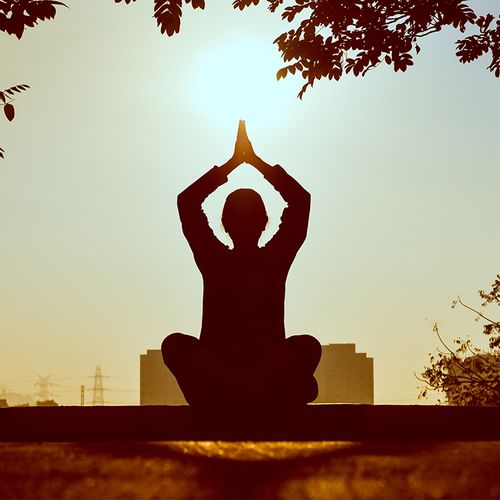For rheumatoid arthritis (RA) sufferers whose painful illness prompts depression, relief may come from the practice of an age-old technique already embraced by millions around the world—meditation.
Researchers found that a half-year exposure to meditation techniques helped patients with RA reduce their psychological distress by as much as one-third.
Background
The research team, led by Elizabeth K. Pradhan, PhD, of the University of Maryland School of Medicine's Center for Integrative Medicine, based its conclusions on an analysis of a specific training course called "Mindfulness-Based Stress Reduction (MBSR), which includes meditation and yoga exercises.
Dr. Pradhan and her colleagues said the MBSR concept of "mindfulness" is designed to guide patients to focus on the "here and now," while emphasizing the value of calmness, clarity, well-being and a compassion for oneself and others.
The Maryland researchers noted that prior studies had already shown that the MBSR course, in particular, seems to have a positive impact on the psychological symptoms of patients with conditions such as anxiety disorders, chronic pain, fibromyalgia, cancer and multiple sclerosis. Patients recovering from organ transplant surgery also seem to derive some benefit, the researchers said.
Arthritis Study
For their study, Dr. Pradhan and her colleagues focused specifically on RA, an inflammatory form of arthritis that causes joint pain and damage. It was the first-ever analysis of MBSR and its impact on depression, general well-being and disease progression among RA patients, the researchers said.
Thirty-one patients were offered the meditation course over an eight-week period, followed by a four-month maintenance program. Another 32 patients did not participate but were told they would be offered free meditation training once the study was completed.
During the trial, all the patients (average age 54 years) continued to be treated by their regular doctor-and to take whatever medication they'd been taking before the study began.
At the start of the study, and two and six months later, all the patients completed questionnaires to assess depressive symptoms and psychological distress. Also, blood measures of inflammation were taken and an assessment of tender and swollen joints was done to evaluate current RA status.
The Results
By the two-month mark, both the meditation and the non-meditation groups had shown equal levels of improvement in terms of depression and emotional symptoms.
But by six months, there was a "significant" difference in perceived psychological distress between the two groups-those practicing meditation reported a 35% reduction in psychological distress
The researchers emphasized, however, that the meditation had no impact on the progression and activity of RA disease itself.
Implications
Dr. Pradhan and her team concluded that the meditation technique offered RA patients a safe and appealing way to improve their sense of well-being, when offered alongside conventional medical care.
"There's a fair amount of emotional distress that accompanies RA in terms of stability, worrying about the future, worrying about the ability to take care of oneself, to keep a job, to say nothing about the daily pain," Dr. Pradhan said "There's just a lot to deal with. So, I think this is a novel and innovative way to handle this emotional distress and one that hasn't been tried before, and we were happy to see that it did make a difference along those lines.
"It doesn't really change disease status. That didn't happen," she said. "But in terms of ability to cope with a chronic and debilitating condition, meditation did appear to be quite helpful. And there was really high satisfaction with the intervention. So, I think this bodes well for the future.
"The other thing I think is important to note about our study," Dr. Pradhan continued, "is that mindfulness meditation can be combined with any rheumatological therapy. It is truly complementary medicine in that sense, done in addition to pharmacological or other intervention. So, for physicians and patients who wonder what they can do to improve well-being beyond taking medications, this study offers evidence for a beneficial approach to dealing with the psychological distress of RA."
Expert Reaction
Stephen Lindsey, MD, head of rheumatology at Ochsner Health Systems in Baton Rouge, Louisiana, applauded Dr. Pradhan and her team for managing to get a scientific handle on a phenomenon he has observed throughout his practice.
"If someone is having stress and trouble with their arthritis, if you can somehow decrease the stress, you might be able to increase their function," Dr. Lindsey said. "And when you're meditating, you're trying to relax your body and get rid of the tension. It doesn't necessarily have to be a meditation scheme. It could be yoga, or Pilates, or a self-help course. But I'm in favor of using everything possible to help people, and this would be just one more way to help patients improve their lives."
